
Artisanal Rituals for a Memorable Customer Experience
How can brands create a more balanced and memorable customer experience by blending artisanal product quality with thoughtful everyday rituals that keep people coming back?
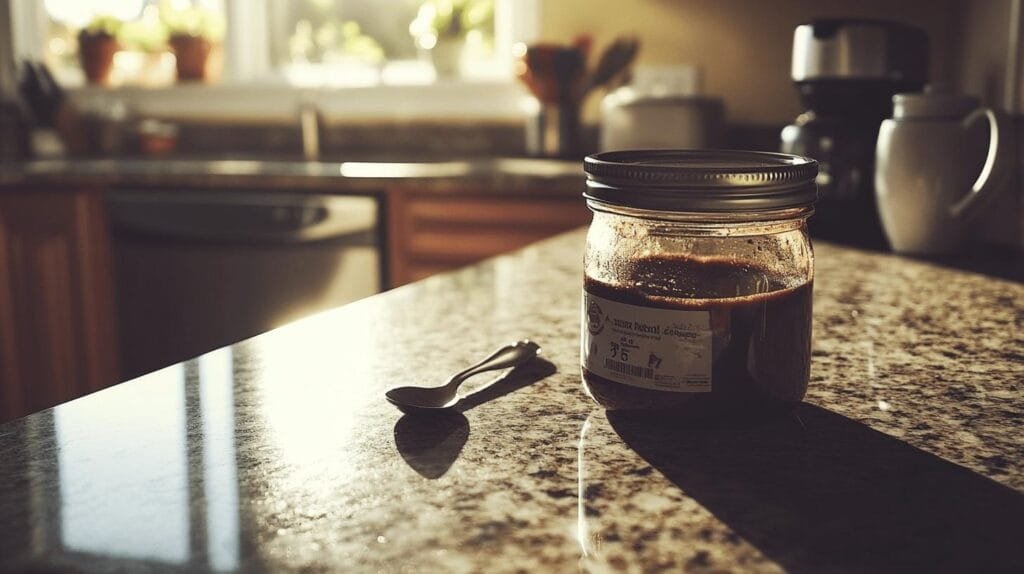
Is your morning cup of instant coffee packing more caffeine than you bargained for? While many assume instant coffee contains negligible caffeine, the truth might surprise you. From a modest 30 mg to a robust 150 mg per serving, instant coffee’s caffeine content varies widely, influenced by factors that affect caffeine levels like coffee bean type and brand production methods.
Understanding the amount of caffeine in instant coffee is crucial for making informed daily consumption choices. Explore the complexities of caffeine in instant coffee and learn how to find the perfect balance in your daily coffee habit.
The caffeine content of instant coffee can vary widely, typically ranging from 30 to 100 mg per serving. This variation depends on factors that affect caffeine such as the type of coffee beans used and how the coffee is processed. For example, robusta-based instant coffee blends can contain up to 150 mg of caffeine in a cup, which is quite high. The USDA notes that one teaspoon of instant coffee has about 28.3 mg of caffeine. However, other studies suggest an average cup of coffee might have closer to 80 mg.
Several factors affect caffeine levels in instant coffee. These include the species of coffee bean, roasting process, and production methods. Robusta beans usually have more caffeine compared to arabica beans.
Additionally, lighter roasts generally retain more caffeine than darker ones.
Some production techniques, like freeze-drying, could also affect how much caffeine ends up in your cup. Understanding these elements is key to accurately gauging caffeine per serving.
Knowing the amount of caffeine in instant coffee is essential for managing the amount of caffeine you consume daily. Understanding these levels helps individuals adjust their intake to meet the recommended 400 mg of caffeine per day.

Instant coffee usually has less caffeine than regular coffee that’s brewed. This difference is due to the way each is made and the types of coffee beans used. The processes involved in making instant coffee typically result in lower caffeine levels, making it suitable for those looking for a milder caffeine intake.
Brewed coffee is known for its higher caffeine content. An 8-ounce cup of coffee generally contains about 95 mg of caffeine. Several factors affect caffeine in brewed coffee, such as the brewing method, the coffee-to-water ratio, and the species of coffee used. A drip coffee maker or French press can extract different amounts of caffeine.
Robusta beans have more caffeine than arabica beans, making brewed coffee a stronger choice for those needing a caffeine boost.
In contrast, instant coffee typically contains between 30 to 50 mg of caffeine per teaspoon, depending on the brand and roast level. The lower caffeine content is mainly due to its production methods, which involve brewing and dehydrating the dried coffee before packaging it into coffee granules or coffee crystals.
Coffee and instant coffee differ not only in preparation but also in the amount of caffeine they deliver. Despite having less caffeine, instant coffee remains popular because it is convenient and easy to prepare.
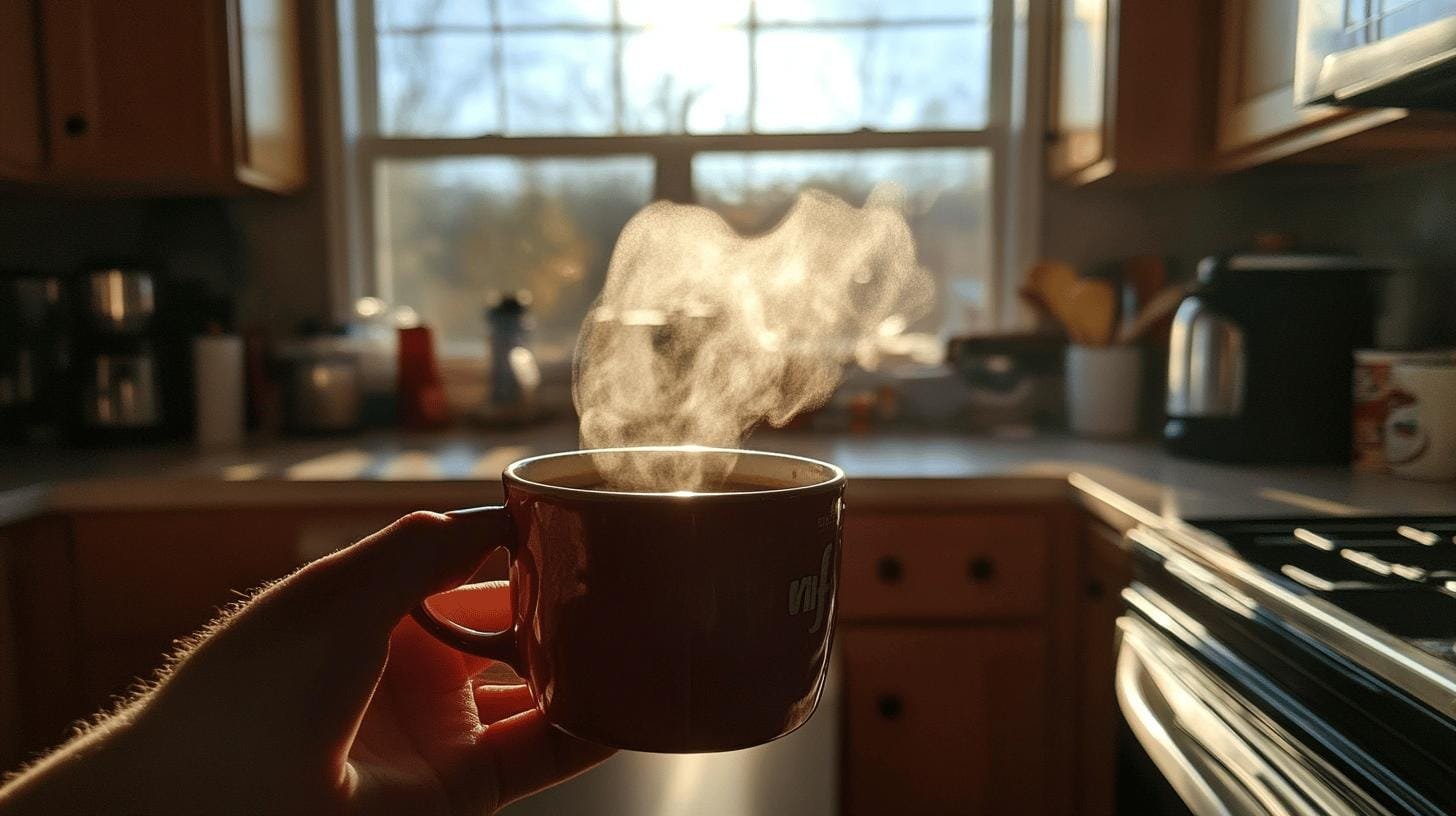
Moderate caffeine consumption from instant coffee offers several health benefits. It can enhance cognitive function by boosting alertness and concentration. Some research indicates that regular, moderate caffeine consumption might lower the risk of neurodegenerative diseases. Antioxidants in coffee also support health by reducing oxidative stress. However, these benefits are best gained when caffeine intake stays within recommended amounts.
Excessive caffeine consumption from instant coffee can cause negative side effects like anxiety, insomnia, and increased heart rate. High caffeine levels may also lead to digestive issues or contribute to hypertension.
Because tolerance to caffeine varies widely, even slightly less caffeine than lighter roasts could impact some individuals. Responsible management of your daily caffeine intake is key.
Managing caffeine consumption from instant coffee is important for overall well-being. Staying within limits helps avoid issues like insomnia or jitteriness. Many people find instant coffee a convenient source of caffeine, but portion awareness matters. Adjusting how much instant coffee you use per cup and selecting instant coffee brands with lower caffeine can help maintain control.
Consider switching to low-caffeine instant coffee made with arabica beans. These typically have less caffeine than lighter roasts or robusta blends. Being aware of your tolerance to caffeine and how different instant coffee blends affect you ensures safer consumption.
Beyond instant coffee, the world of specialty coffee offers deeper flavor and nuance. Four Colombian coffee farmers might produce beans with unique taste profiles depending on climate, altitude, and coffee varietal. Compared to concentrated coffee like instant, these beans deliver a complex sensory experience.
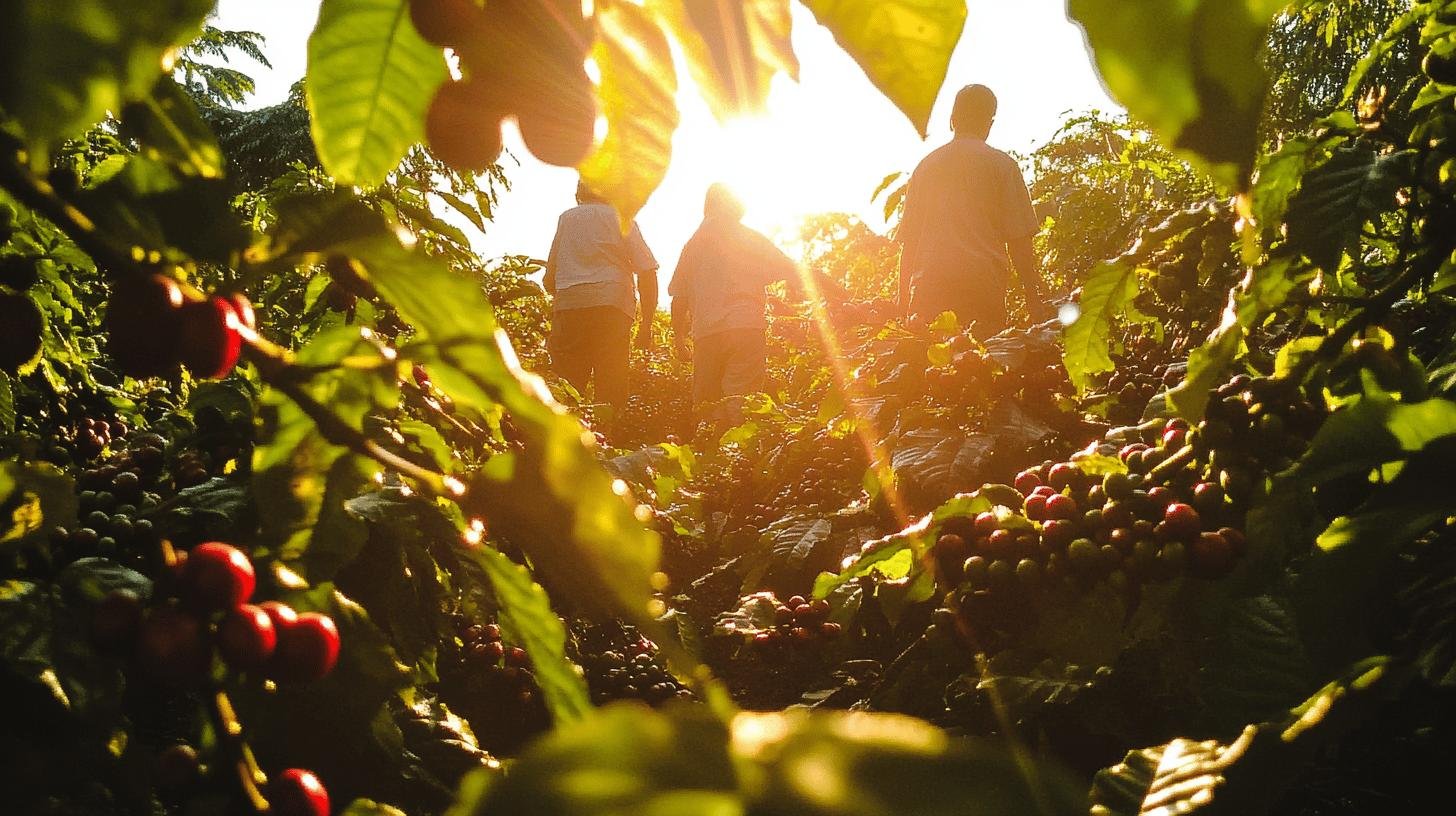
Today’s coffee trends include cold brew, nitro coffee drinks, and artisanal instant coffee options. High-end instant coffee brands are innovating with better flavors and controlled caffeine content. Consumers are also investing in coffee tools to bring coffee shop experiences home.
Mastering home brewing starts with quality beans and equipment. From brewing ground coffee to experimenting with pour-overs, your coffee ritual can match any coffee shop. Knowing your ideal caffeine per cup level can also enhance the experience.
The caffeine content in coffee varies widely across types. Instant coffee powders typically have less caffeine per serving than freshly ground coffee. These differences matter for those tracking how much caffeine is in one teaspoon or in each cup of their favorite blend.
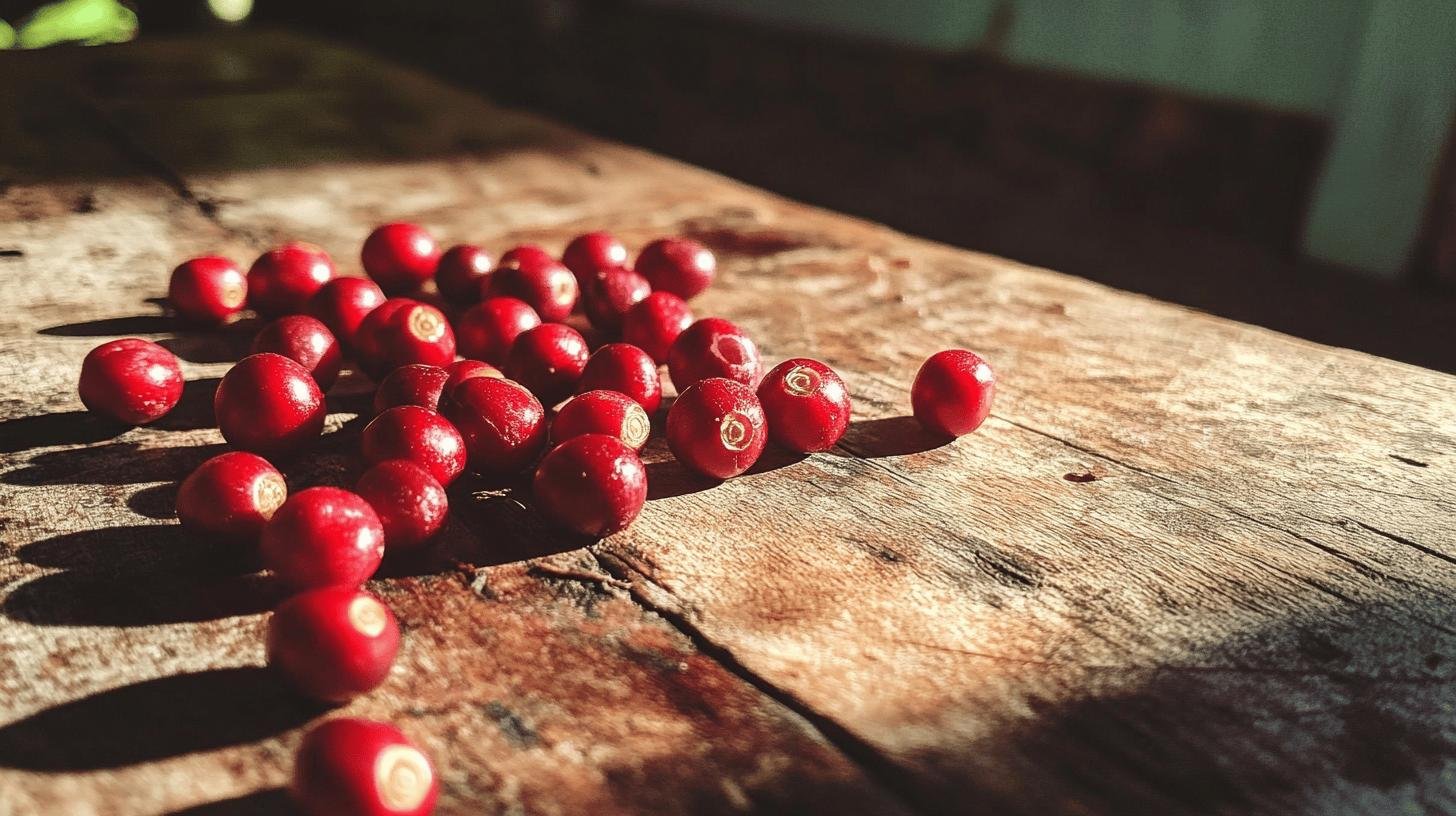
What are the effects of caffeine from instant coffee?
It can boost focus and alertness. Too much, however, may lead to jitteriness or insomnia depending on your tolerance to caffeine.
How is instant coffee made?
Instant coffee is brewed, then dehydrated into coffee crystals or powder. This process affects how much caffeine is extracted compared to brewing ground coffee.
Can I drink coffee if I’m sensitive to caffeine?
Yes. Choose decaf coffee or low-caffeine instant coffee, often made with arabica beans, which naturally contain less caffeine.
What are the benefits of arabica coffee over robusta?
Arabica has less caffeine and a smoother taste, making it ideal for those wanting a normal cup of coffee with less bitterness.
How can I reduce my caffeine intake without giving up coffee?
Try reducing serving sizes or switching to instant coffee blends with less caffeine content. Look for coffee labeled low-caffeine per serving.
What should I know about the global coffee market?
It includes a range of coffee types, from instant coffee to specialty coffee, with growing interest in sustainability and quality.
Is there a difference between instant and ground coffee in terms of health benefits?
Yes. While both contain antioxidants, instant coffee contains approximately slightly less caffeine, making it easier to manage caffeine consumption.
What should I consider when choosing between instant and ground coffee?
Think about flavor, convenience, and how much caffeine is in each cup. Instant coffee is quicker; ground coffee is richer.
How does the caffeine content in instant coffee compare to other caffeinated drinks?
Instant coffee generally has more caffeine than tea or soft drinks, but less than concentrated coffee or espresso.
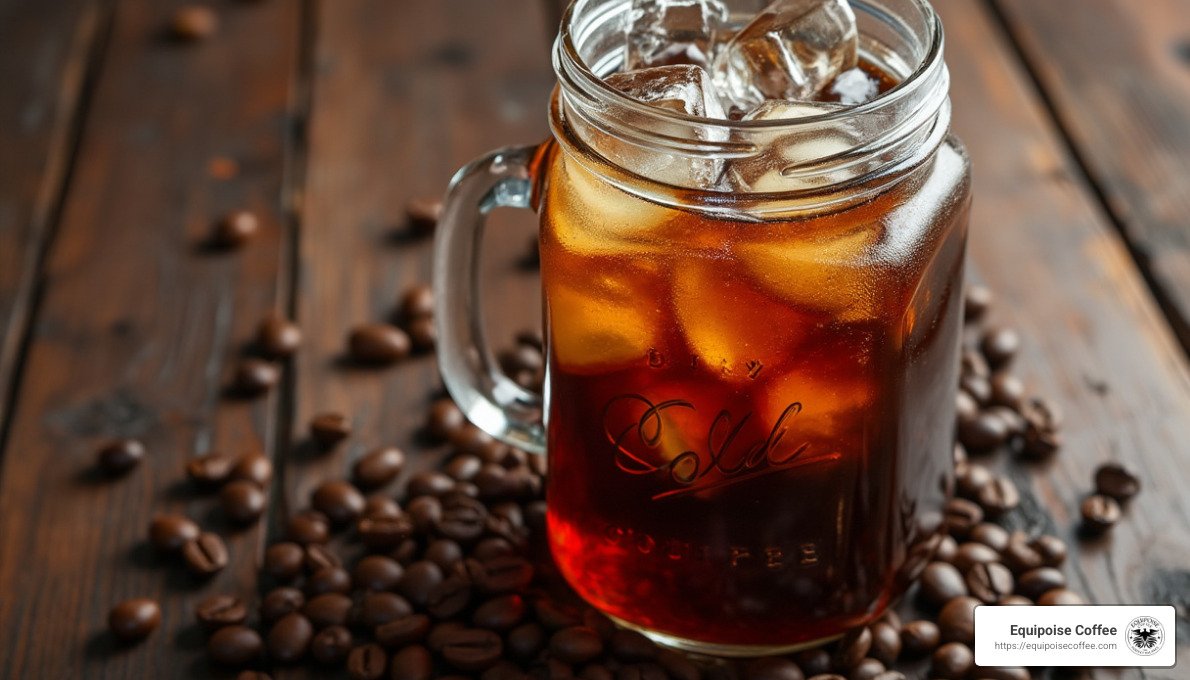
Recognizing the variety in the amount of caffeine in instant coffee helps in making informed daily decisions. Instant coffee presents a wide range of caffeine content, typically lower than brewed options. Moderate caffeine consumption can offer cognitive benefits, but exceeding recommended limits may lead to adverse effects. Exploring adjustments to serving sizes and choosing low-caffeine alternatives supports balanced caffeine consumption. By understanding these factors, one can enjoy the pleasures of coffee without overstepping safe caffeine thresholds. Whether you’re choosing based on flavor or health, understanding how much caffeine is in one teaspoon of instant coffee empowers you to enjoy your favorite drink with intention and awareness.

How can brands create a more balanced and memorable customer experience by blending artisanal product quality with thoughtful everyday rituals that keep people coming back?

Independent coffee shops have always been about more than caffeine—they’re hubs of creativity, connection, and care. As café culture continues to evolve, new trends are

Introduction Independent cafes win when they feel like the neighborhood’s living room and operate with the discipline of a great kitchen. Below is a quick

Discover how top specialty coffee brands create lasting loyalty through storytelling, sourcing, and community connection. Real tips from 6 industry experts.

Discover the ultimate showdown between two beloved coffee brewing methods: the French press and Chemex. Explore how each technique caters to distinct palates, with the French press delivering bold flavors and the Chemex presenting a bright, clean taste.

Unlock the secrets to brewing the perfect cup of coffee with our comprehensive guide on using a coffee scale. Discover how precise measurements enhance flavor and consistency while eliminating bitterness.

Discover how water temperature plays a vital role in brewing the perfect cup of coffee. This article delves into the ideal temperature range of 195°F to 205°F for optimal flavor extraction, enhancing the enjoyment of high-quality beans.

Discover the world of curated specialty coffee bundles, perfect for enthusiasts seeking quality and craftsmanship. This article explores the benefits of ethically sourced, small-batch beans from brands like Equipoise Coffee, offering diverse flavor profiles that elevate your brewing experience.

Discover the art of manual brewing to elevate your coffee experience! This article explores various techniques like pour-over, French press, and AeroPress, revealing how they enhance flavor and your connection to every cup.